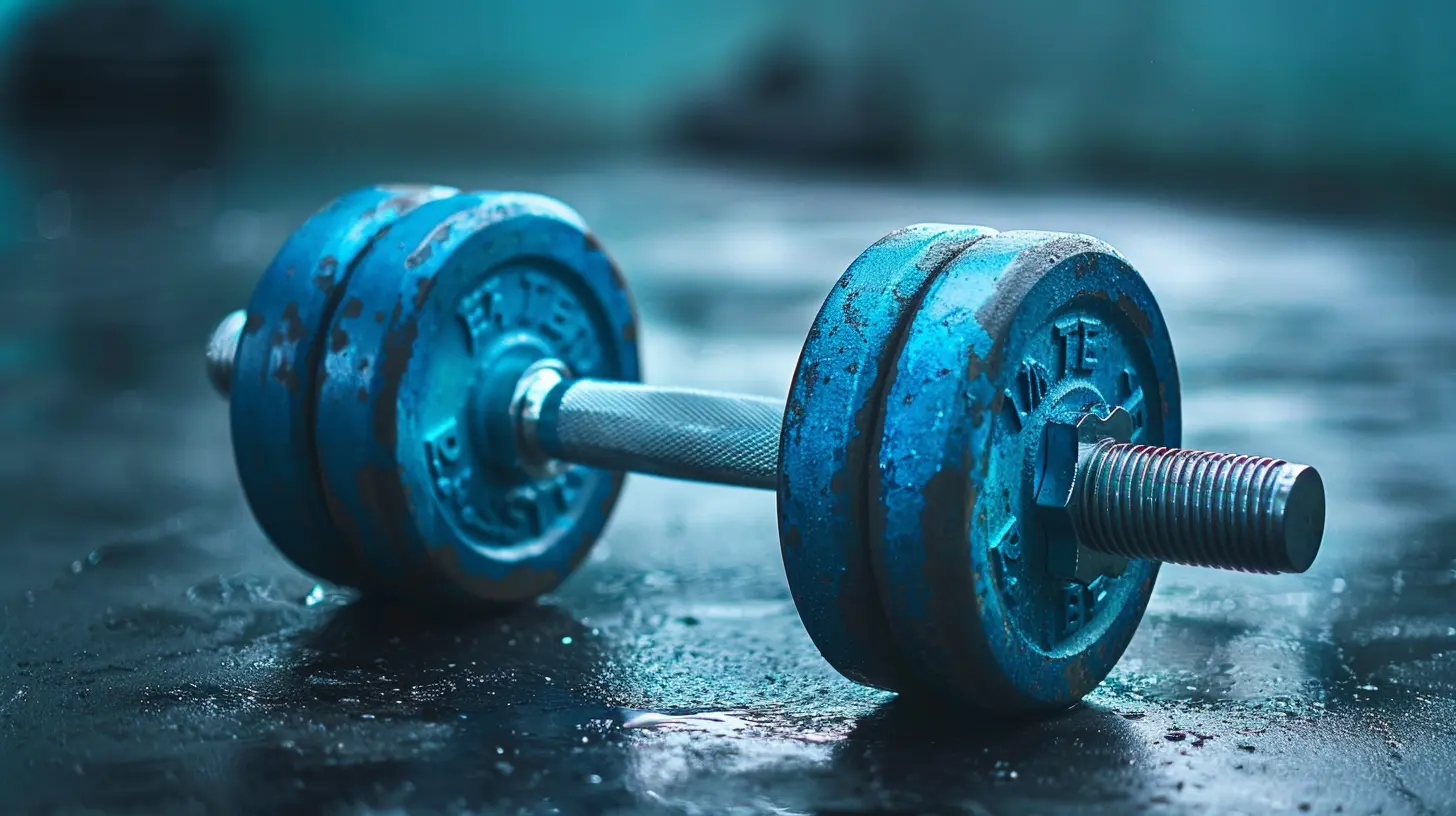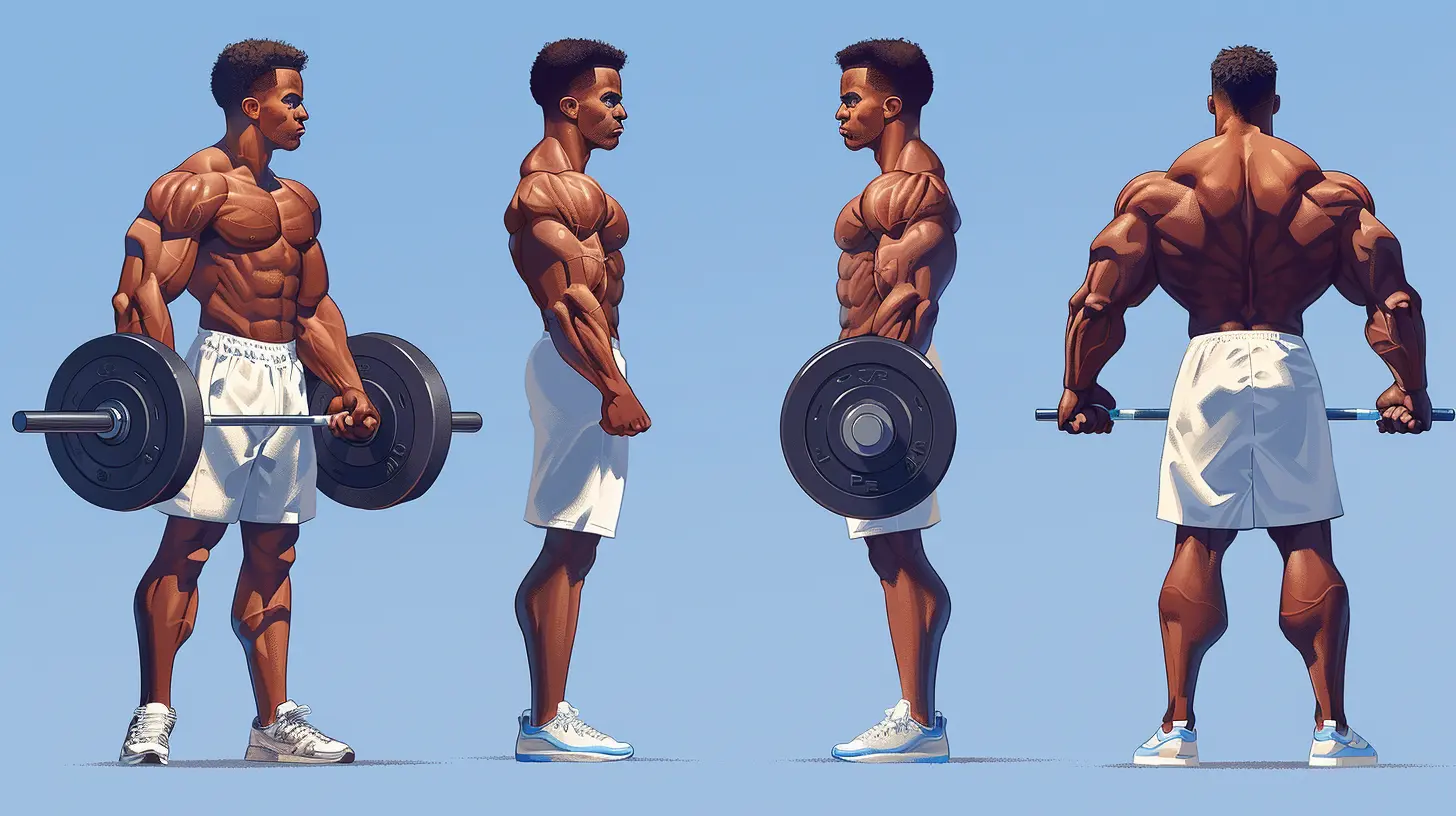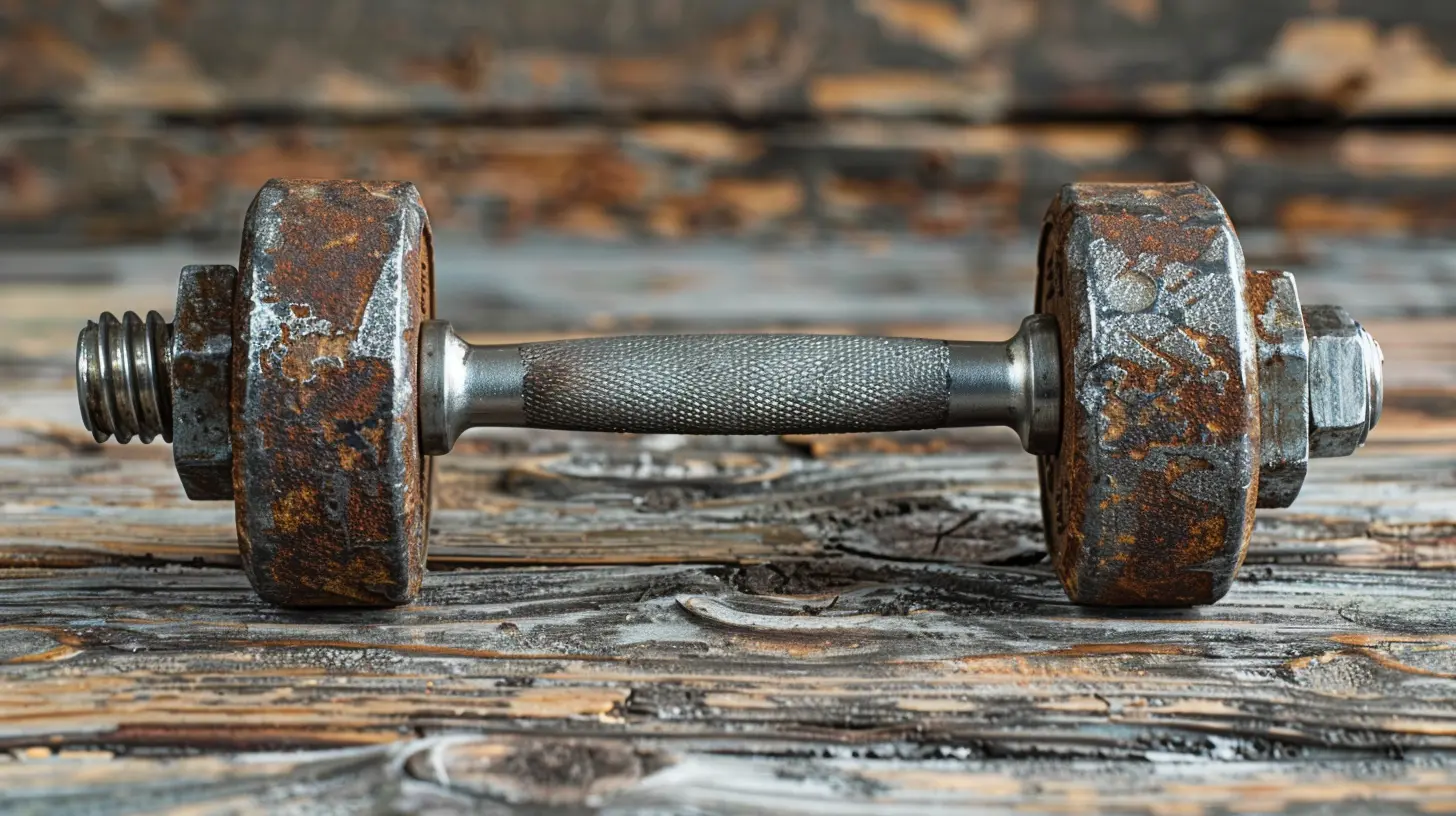Common Muscle Recovery Tips Every Weightlifter Should Know
3 November 2025
Weightlifting is a grind. You push your body to its limits, tear down muscle fibers, and expect them to come back stronger. But here's the catch—your muscles don’t grow in the gym. They grow during recovery.
If you’re not paying attention to how you recover, you’re leaving gains on the table. Proper muscle recovery isn’t just about resting; it’s a science and an art. And if you master it, you’ll lift heavier, feel better, and reduce your risk of injury.
So, how do you speed up muscle recovery and keep those gains coming? Let’s dive into the essential recovery tips every weightlifter should know.

1. Prioritize Sleep—The Ultimate Recovery Tool
Sleep is your body's natural anabolic state. While you're snoozing, your muscles are repairing and growing. If you're skimping on sleep, you're shortchanging your progress.How Much Sleep Do You Need?
Aim for 7-9 hours of quality sleep per night. Elite athletes often shoot for even more because their bodies need extra time to recover.Tips for Better Sleep:
- Stick to a consistent sleep schedule (yes, even on weekends).- Avoid screens at least 30-60 minutes before bed.
- Keep your room cool, dark, and quiet for optimal rest.
- Consider taking magnesium or a nighttime tea to relax your muscles and mind.

2. Nutrition—Feed Your Muscles Right
You wouldn’t put cheap gas in a Ferrari, right? Well, your muscles need premium fuel too.Protein: The Building Block
Protein is non-negotiable. Your muscles need amino acids to rebuild, so make sure you’re consuming 1.2-2.2 grams of protein per kilogram of body weight daily.Great protein sources include:
✅ Lean meats (chicken, turkey, beef)
✅ Eggs
✅ Fish (salmon, tuna)
✅ Dairy (cottage cheese, Greek yogurt)
✅ Plant-based options (lentils, quinoa, tofu)
Carbs & Fats Matter Too
Carbs refill your glycogen stores, and healthy fats support hormone production. Don’t fear either one! Opt for nutrient-dense choices like:- Carbs: Sweet potatoes, brown rice, oats, fruits
- Fats: Avocados, nuts, olive oil, fatty fish

3. Hydration—Muscles Crave Water
Dehydrated muscles are weak, sore, and slow to recover. Don’t let that happen to you.Water helps flush out toxins, transport nutrients, and improve blood circulation—all essential for muscle repair.
How Much Water Should You Drink?
Aim for at least 3-4 liters (100-135 oz) per day, and even more if you’re sweating a lot.Bonus Tip: Add electrolytes (sodium, potassium, magnesium) to your water for better hydration and muscle function.

4. Active Recovery—Keep Moving
Rest days don’t mean lying on the couch all day. Active recovery speeds up the healing process by increasing blood flow and reducing stiffness.Best Active Recovery Activities:
- Light cardio (walking, cycling)- Stretching or yoga
- Foam rolling
- Swimming
A little movement goes a long way in keeping you mobile and pain-free.
5. Stretching & Mobility—Unlock Tight Muscles
Weightlifting makes you stronger, but it also tightens muscles over time. Tightness leads to poor posture, imbalances, and injuries.When and How to Stretch:
- Before lifting: Dynamic stretching (leg swings, arm circles, hip openers)- After lifting: Static stretching (holding a stretch for 20-30 seconds)
- Anytime: Foam rolling to release knots and improve circulation
6. Massage & Foam Rolling—DIY Muscle Therapy
Ever had that deep ache in your muscles after an intense workout? That’s where massage and foam rolling come in.Massage helps release tension, improve circulation, and reduce muscle soreness. If you can, get a professional sports massage occasionally.
For daily recovery, try:
- Foam rolling (especially on quads, hamstrings, and back)
- Using a lacrosse ball for deeper muscle knots
- Percussion massage guns for quick relief
It hurts so good—but your muscles will thank you later.
7. Listen to Your Body—Rest When Needed
Overtraining is real. If you’re constantly sore, fatigued, or feeling weaker, your body is screaming for rest.Signs You Need More Recovery:
🚩 Constant muscle soreness that doesn’t go away🚩 Decreased performance despite training consistently
🚩 Trouble sleeping or feeling exhausted all day
🚩 Increased irritability or lack of motivation
Rest days are when your muscles come back stronger. Don’t neglect them.
8. Supplement Wisely—What Actually Works?
Supplements won’t replace proper nutrition, but they can give you a recovery edge.The best science-backed recovery supplements include:
- Whey or plant-based protein – Helps meet daily protein goals.
- Creatine monohydrate – Supports muscle recovery, power, and endurance.
- BCAAs or EAAs – May help reduce muscle breakdown.
- Omega-3s (fish oil) – Reduce inflammation.
- Magnesium – Helps with muscle relaxation and reduces cramping.
Skip the gimmicks—stick with what’s proven to work.
9. Ice Baths & Heat Therapy—Cold vs. Hot
Ever wondered if you should use ice or heat for recovery? Here’s the breakdown:- Ice baths (cold therapy): Reduce inflammation, numb soreness, and speed up recovery after intense training.
- Heat therapy (warm baths, heating pads): Loosens tight muscles, improves circulation, and reduces stiffness.
Try experimenting with both and see what works best for your body.
10. Consistency is Key—Make Recovery a Habit
Here’s the truth: Ignoring recovery slows your gains. Making small, daily efforts to recover properly adds up over time.The lifters who stay in the game long-term? They prioritize recovery just as much as lifting.
Quick Recap of Recovery Must-Dos:
✔ Get quality sleep✔ Eat enough protein & nutrients
✔ Stay hydrated
✔ Do active recovery on rest days
✔ Stretch & improve mobility
✔ Use massage & foam rolling
✔ Pay attention to how your body feels
✔ Consider helpful supplements
✔ Use ice or heat when needed
✔ Be consistent—recovery is a lifestyle
Final Thoughts
Building muscle isn’t just about lifting heavy—it’s about recovering smart. When you take care of your body, it rewards you with strength, endurance, and longevity.So next time you hit the gym, remember: the work doesn’t stop when you rack the weights. Your recovery game matters just as much!
Stay consistent, stay smart, and keep making those gains!
all images in this post were generated using AI tools
Category:
Weight TrainingAuthor:

Holly Ellison
Discussion
rate this article
1 comments
Ford Lawson
Great insights! Remember, every rep counts not just in lifting but in recovery too. Prioritizing rest, hydration, and nutrition paves the way for stronger gains. Embrace the recovery process as a vital part of your journey. Each step brings you closer to your goals. Keep pushing forward! 💪✨
November 6, 2025 at 4:51 AM

Holly Ellison
Thank you! Absolutely, recovery is key to maximizing gains and overall performance. Prioritizing those aspects ensures we achieve our goals effectively. 💪✨


